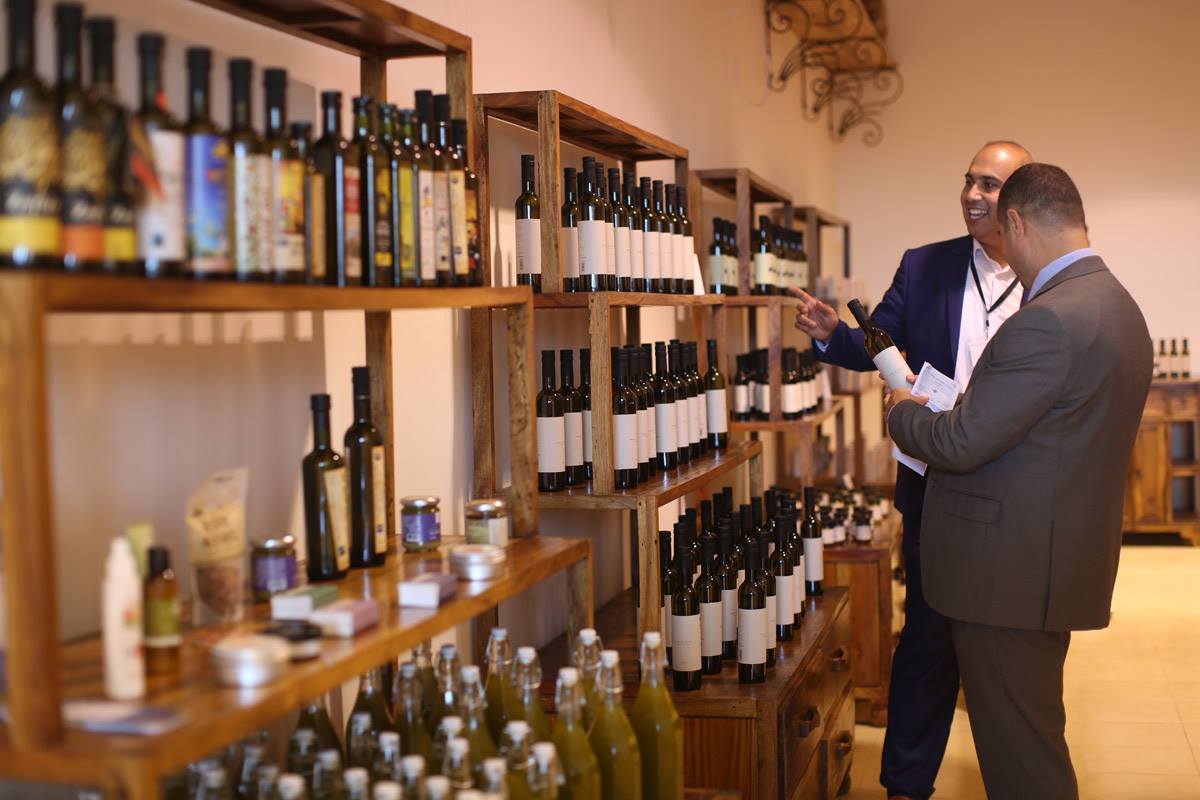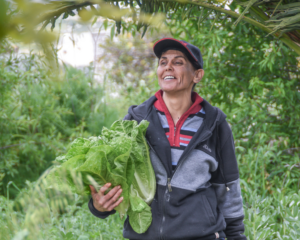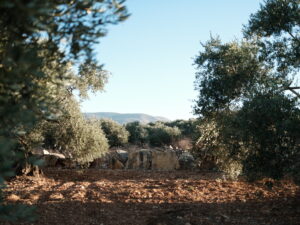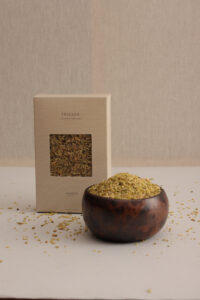Shopping for olive oil can be overwhelming – first, you must choose the grade of olive oil, then determine the quality, and finally select which olive oil company to buy from. For many, just understanding olive oil quality is a bit of a mystery – there’s no roadmap to use at the grocery store. Ultimately, most people end up choosing an olive oil based on price alone, which results in a poor experience. The quality of olive oil not only impacts the flavor, but also the vitamins and nutrients available to you.
Canaan Palestine is not your average olive oil company. Our varieties of olives are ancient – some are even thousands of years old. These varieties, coupled with the ample biodiversity found in the eastern Mediterranean, make for the highest quality, most nutrient-dense olive oil. When compared to your typical grocery store olive oil, the difference is undeniable. The proof is in the flavor, appearance, and smell.
The Grades of Olive Oil
Most people are familiar with two grades of olive oil: virgin and extra virgin. Both are pure olive oil, but virgin allows a certain level of defect while extra virgin olive oil does not. To make olive oil, we first crush olives into a coarse paste, then press them to extract oil with no heat or chemicals involved. The resulting olive oil is then evaluated based on several variables to determine its grade and quality.
Extra virgin olive oil is flawless, with a distinctive fruity aroma, and usually contains levels of pungency, bitter, and peppery flavors, though these aspects do vary depending on the type of olive, where it was grown, and when it was harvested. This type of olive oil must be classified as pure extra virgin olive oil through an intense process, completed by trained experts. It must meet chemical standards and have no sensory flaws, with an acidity value of less than 0.8%. These standards ensure that extra virgin olive oil is the highest olive oil quality you can buy.
Virgin olive oil is created through the same cold-pressing method as extra virgin, but it has some minor levels of defects in the taste profile. It is still virgin olive oil – meaning it is not blended or refined – but it doesn’t meet the extremely high standards of extra virgin olive oil. Virgin olive oil has an acidity value of under 2%.
To determine the grades of olive oil, it goes through organoleptic analysis, which is essentially a flavor analysis completed by a panel of trained experts. These experts review olive oil for both good and bad flavors.
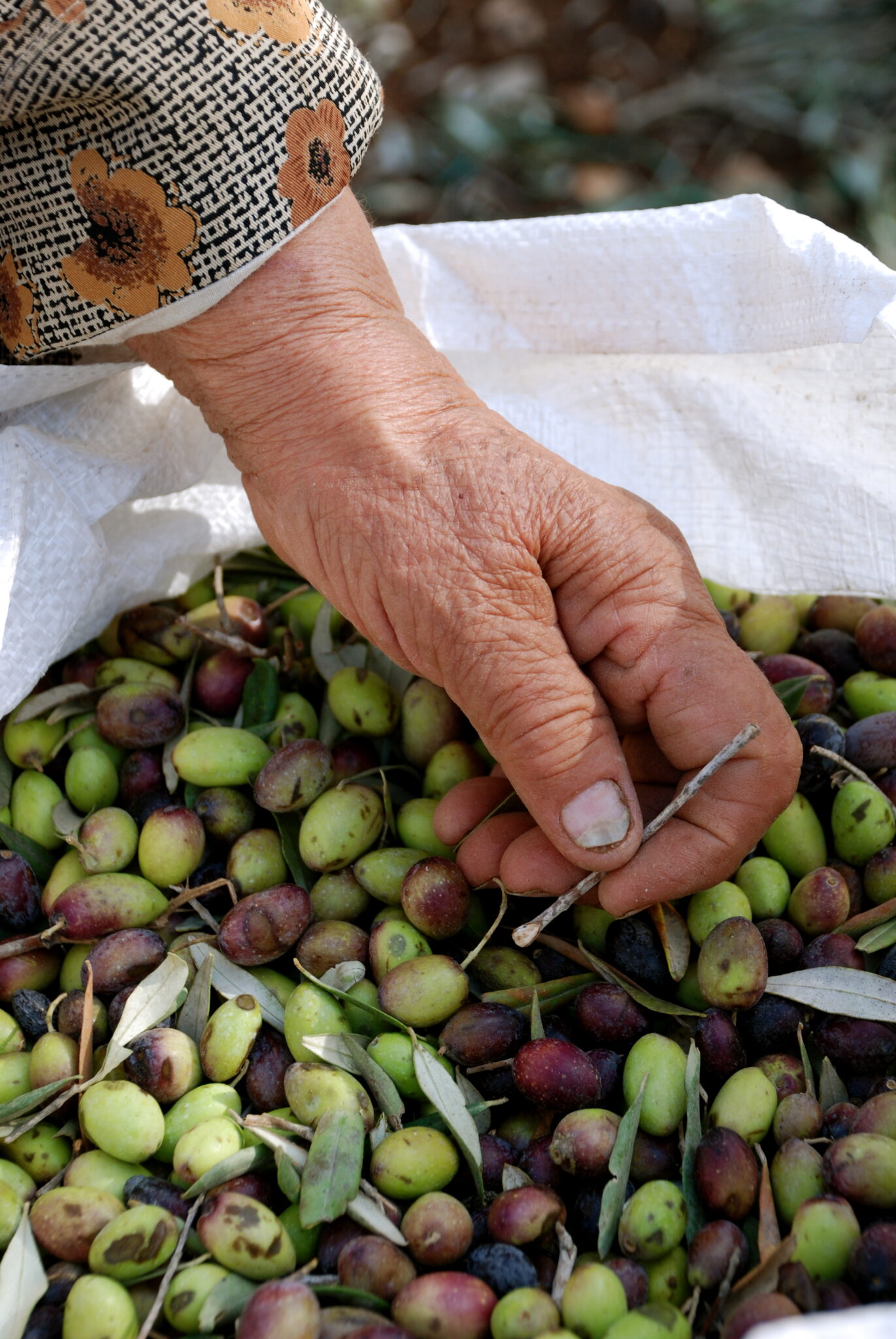
Many aspects can affect the quality of olive oil. The following are examples of what can cause defects and fermentation, which causes musty, off-putting flavors that are in the “bad” flavor category:
- Olives that are not directly harvested from the tree, but rather from the soil below it.
- Olives that have worms.
- Olives that are overripe.
- Olives that encounter heat while in transport sacks or at the time of pressing
Extra virgin olive oil never contains olives that have the defects listed above. Since there are so many things that can impact flavor, the intensive organoleptic analysis is incredibly important for ensuring that our product is of the highest quality.
Extra virgin must also rank for at least one of the good flavors, which include fruitiness, bitterness, and pungency. Oils are ranked on a scale of one to five, and the flavors themselves depend on the variety of olives and regions in which they were grown.
What Makes Palestinian Olive Oil Different?
Aside from the processing, olive oil quality and flavor depend on the region and climate, type of tree, level of ripeness, and care that the olives receive. Palestinian olive oil is incredibly unique, with its taste complexity and rich, robust flavor. This is, in part, because Palestinian olives are ancient varieties, and some of the olive trees still harvested today are hundreds and even thousands of years old. While other areas of the world use modified and crossbred varieties of olives, Palestinian farmers grow only original varieties.
Though Palestine is relatively small, it packs in tons of biodiversity, with healthy soil that is chemically very fertile. This is true in the eastern Mediterranean areas – soil here tends to be more fertile than other areas as it is full of minerals. It is this biodiversity in the soil that enriches the olive oil with nutrients, while also contributing to the complex flavor.
Palestine’s biodiversity is so intense that olive oil originating from one valley can taste noticeably different than olive oil from the next valley over. While one side of a mountain may be calmer, the other side is windy – these aspects affect the olive oil, as well.
Regardless of the conditions, all Palestinian olives are grown on spacious terraces with just 60 trees per acre. For comparison, Californian orchards can have as many as 600 trees per acre. This distinction is important – Palestinian olive trees have their own space, which means that each tree gets plenty of nutrients from the soil, lots of airflow, and tons of sunlight. These growing conditions impact the flavor of the olive, which impacts the olive oil.
Though olive oil varies by region in Palestine, it can be described as delicate, some full-bodied. Some oil has a smooth, sweet, and somewhat peppery finish. These attributes come in varying degrees from region to region and vary from unripe early harvest olives to ripe late harvest olives.
Canaan works with thousands of family farms and pulls in a wide array of olives oils from different regions throughout the span of the harvest time. Then, the craft begins at Canaan. The Canaan taste panel completes the selection and crafting of the exceptional Canaan olive oil taste experience. Some of the taste terms may seem to be in disagreement with each other – sweet yet peppery, delicate yet full-bodied – this is a result of the combination of high quality, extra virgin olive oil. When grown in the incredibly biodiverse lands of Palestine, these juxtaposed flavors create an incredibly interesting and enjoyable flavor experience.

How Canaan Ensures the Best Olive Oil Quality ?
At Canaan, we only sell all organic, extra virgin olive oils directly to our customers. Our variations of olive oil are more complex than what you find elsewhere in the market. This is because we hold ourselves to a higher standard - even higher than the intensive requirements we already meet for extra virgin olive oil.
While we work with thousands of farmers, we don’t simply buy olives from them come harvest time. We are involved throughout the process, and even more so during the harvest and production. Officers from Canaan manage the harvest process with the farmers and work at the presses, pressing the olives during production. During the growing season, we ensure that our farmers use regenerative agricultural practices, which makes for the healthiest soil.
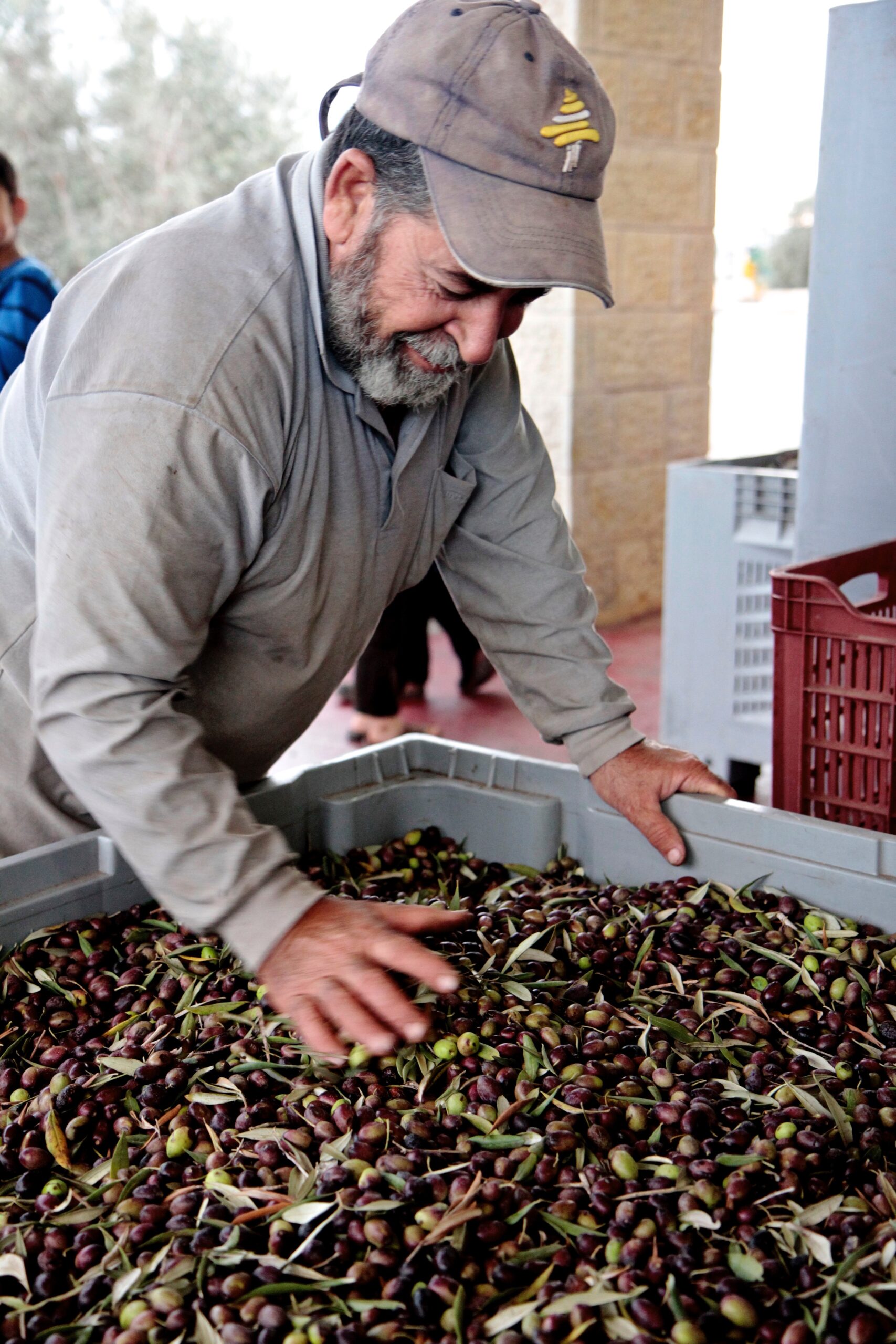
During harvest, the officers are seeking out the best olives based on cleanliness, freshness, and how the olives have been handled. For example, if a farmer puts his olives into a plastic sack, Canaan only accepts these olives for the production of virgin olive oil. We know that – before we even press the olives and taste the oil – keeping the olives in the plastic sack will affect the flavor. Since we sell virgin olive oil to cosmetics companies, we have no problem setting some olives aside for this purpose only.
After pressing is complete, our team of 15 extensively trained buyers is distributed at the presses to taste and separate qualities at the press to avoid mixing with any defective oils. They judge for fruitiness, bitterness, and pungency.
From here, we begin to map out flavors, carefully considering the quality and time of harvest. Each day, the freshly pressed oil is transported to our facilities after going through flavor categorization, where we separate it into tanks based on the flavor characteristics and quality distinctions, before filtering and storing it. Our olive oil is stored in a climate-controlled facility that is always between eight and 16 degrees Celsius. Each tank is covered in a blanket of nitrogen which protects the olive oil from oxidation.
After the harvest is over, our taste panel completes the flavor mapping process for our extra virgin olive oil. Each of the five people on our tasting panel has two years of training from a French specialist from the International Olive Oil Council. They review again for the quality profiles and then we can begin to fill orders based on each of Canaan’s product profiles.
This intensive process – from growing season to harvest to pressing to selection and crafting – sets Canaan apart. Our goal is to be true to our customers, providing them with only the finest experience of olive oil. We do this by being involved with the process – every step of the way
Collections from Canaan Olive Oil Company ?
Canaan offers three signature extra virgin olive oils: Rumi, Nabali, and Jenin. Rumi is a more pungent olive oil, while Nabali is a more medium-bodied, delicate olive oil. Jenin has a diverse range of flavors because it is a mix of early and late harvest olives. The early harvest is greener and brings in bitterness and pungency, while the late harvest brings a more sweet, buttery, fruity flavor with a low pungency.
This range of intensity is the perfect example of the complex flavors that can be found in a single bottle of Canaan olive oil. It’s a central ingredient in many recipes and is especially delightful in Maftoul Salad – a hearty meal of whole wheat flour Maftoul, heirloom tomatoes, feta cheese, and romaine. Without Jenin olive oil, this salad, while still delicious, would taste completely different.
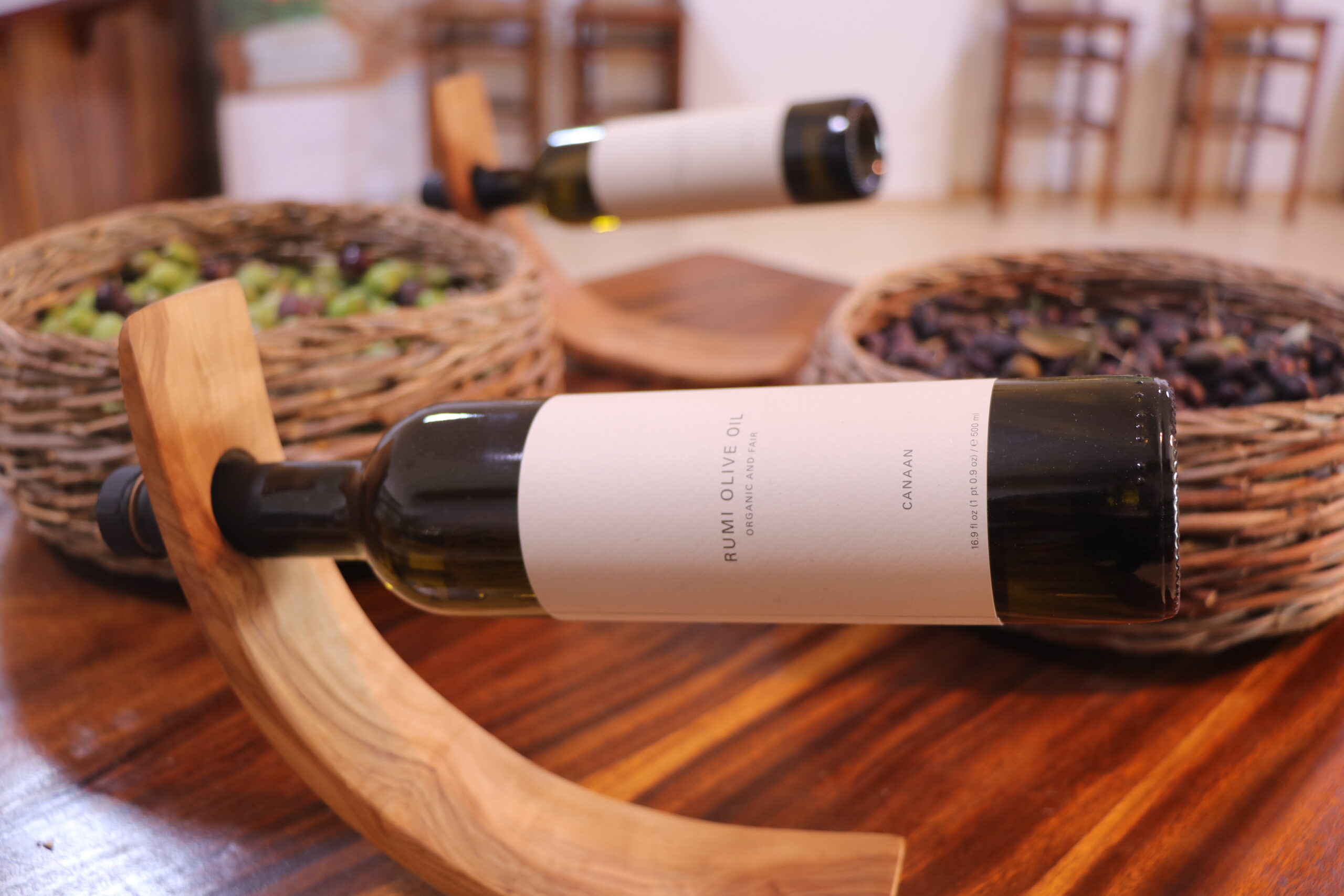
Canaan also offers fusions with our olive oils. We make our fusions with organic ingredients, like fresh lemons and basil, which are carefully crushed and mixed into the crushed olive paste at the press. For the olive oil base, we specifically select olives that are just ripe – around the first week of November – to get a fresh flavor with a hint of bitterness. This lends itself best for fusions, as we want to encourage the flavor of the added ingredients to shine. While we use select fresh olives that produce extra virgin olive oils to start, when crushed with the added flavors of chili, lemon, basil, or garlic, they can no longer be called extra virgin – the olive oil is no longer pure.
There are many grades of olive oil, each reflecting a different olive oil quality. At Canaan, we take quality seriously, considering all aspects of the process that bring on the end result. From the soil that our ancient varieties grow in and the way we harvest the olives, to the methods used to extract the oil and our expert flavor panel – every step is optimized for flavor and quality. We remain true to our customers through our product – a special olive oil that provides a full taste that tickles the back of the jaw and keeps your taste buds entertained long after you finish your bite. We don’t hide behind flowery language that is often used to create a barrier between the producer and the buyer. We describe flavors that anyone can taste because we want everyone to know the joy of our olive oil.

